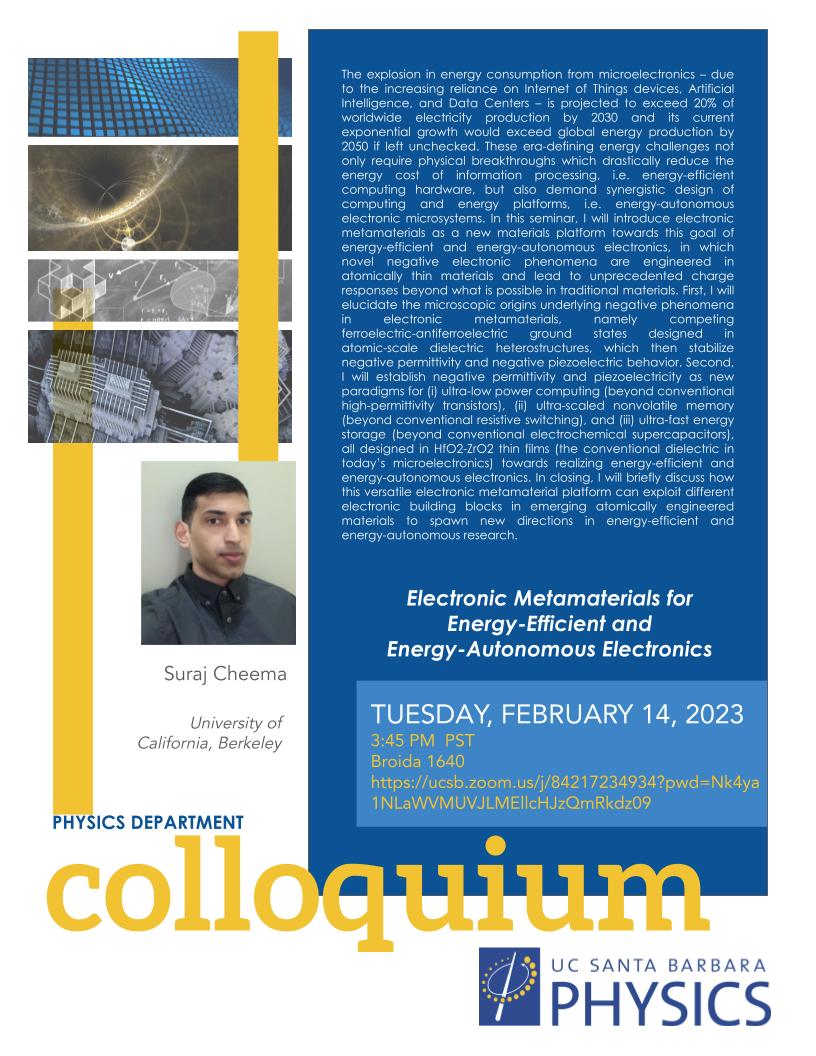
Abstract
The explosion in energy consumption from microelectronics – due to the increasing reliance on Internet of Things devices, Artificial Intelligence, and Data Centers – is projected to exceed 20% of worldwide electricity production by 2030 and its current exponential growth would exceed global energy production by 2050 if left unchecked. These era-defining energy challenges not only require physical breakthroughs which drastically reduce the energy cost of information processing, i.e. energy-efficient computing hardware, but also demand synergistic design of computing and energy platforms, i.e. energy-autonomous electronic microsystems. In this seminar, I will introduce electronic metamaterials as a new materials platform towards this goal of energy-efficient and energy-autonomous electronics, in which novel negative electronic phenomena are engineered in atomically thin materials and lead to unprecedented charge responses beyond what is possible in traditional materials. First, I will elucidate the microscopic origins underlying negative phenomena in electronic metamaterials, namely competing ferroelectric-